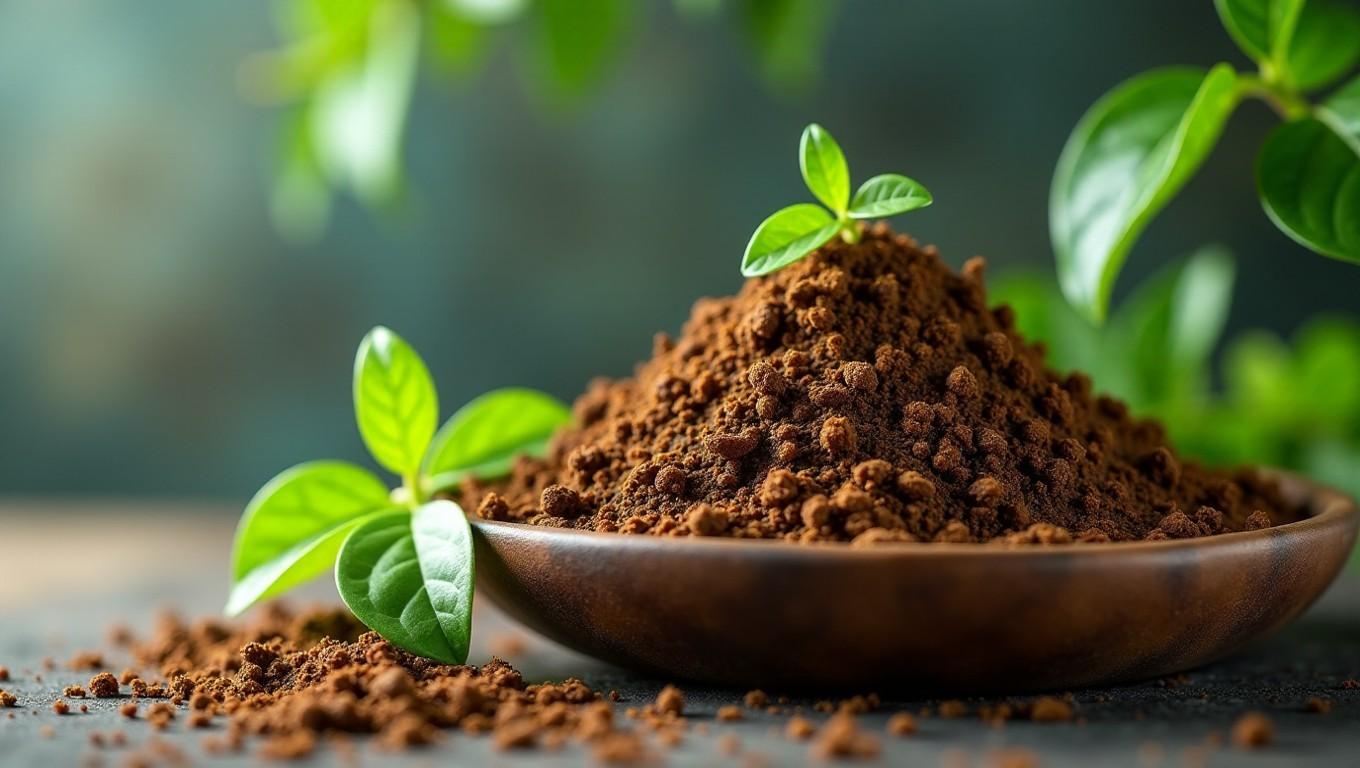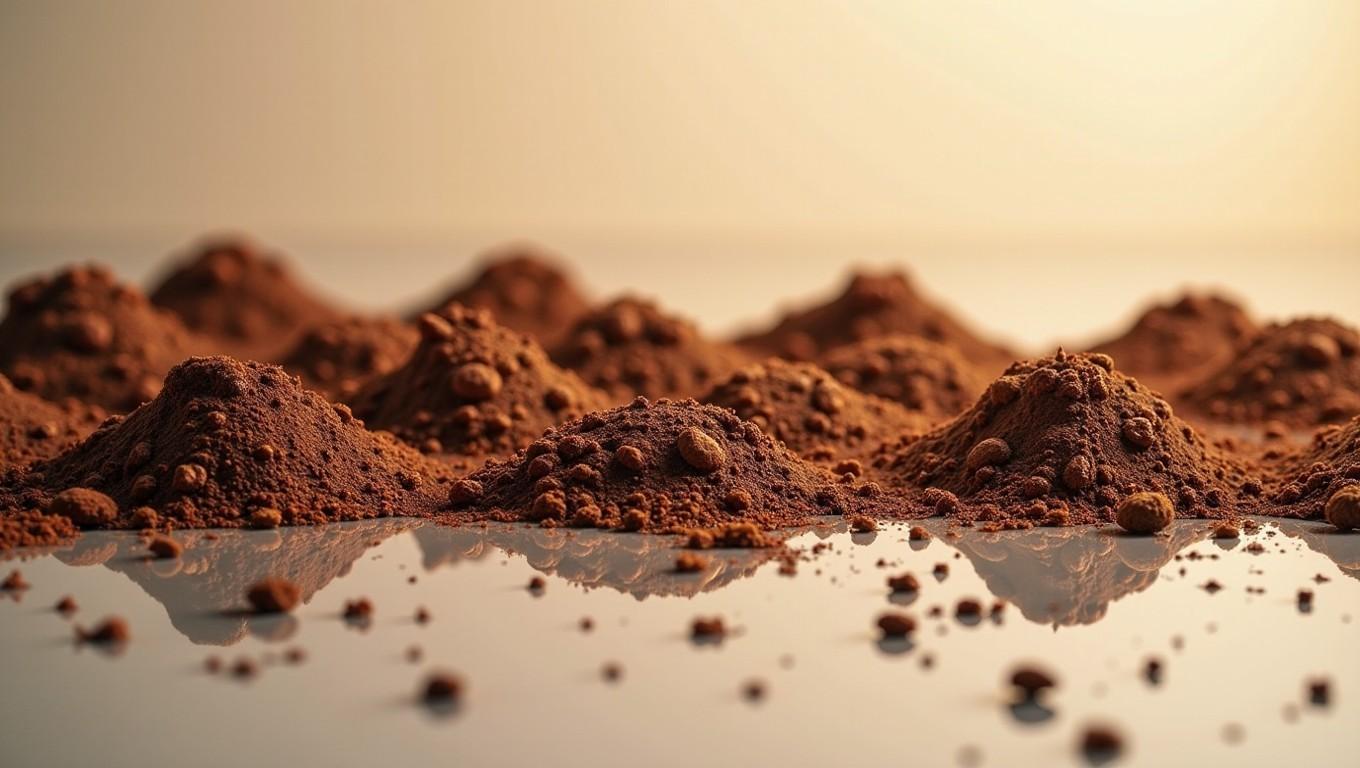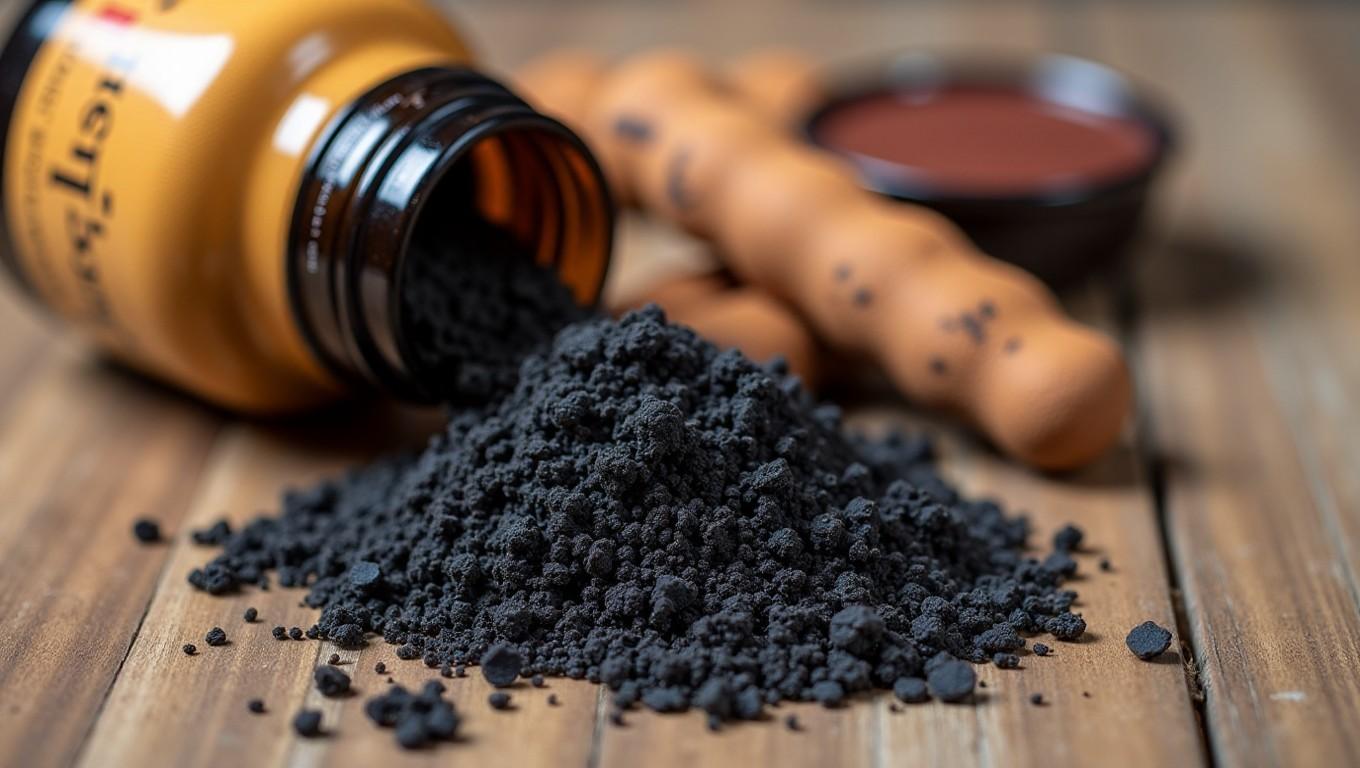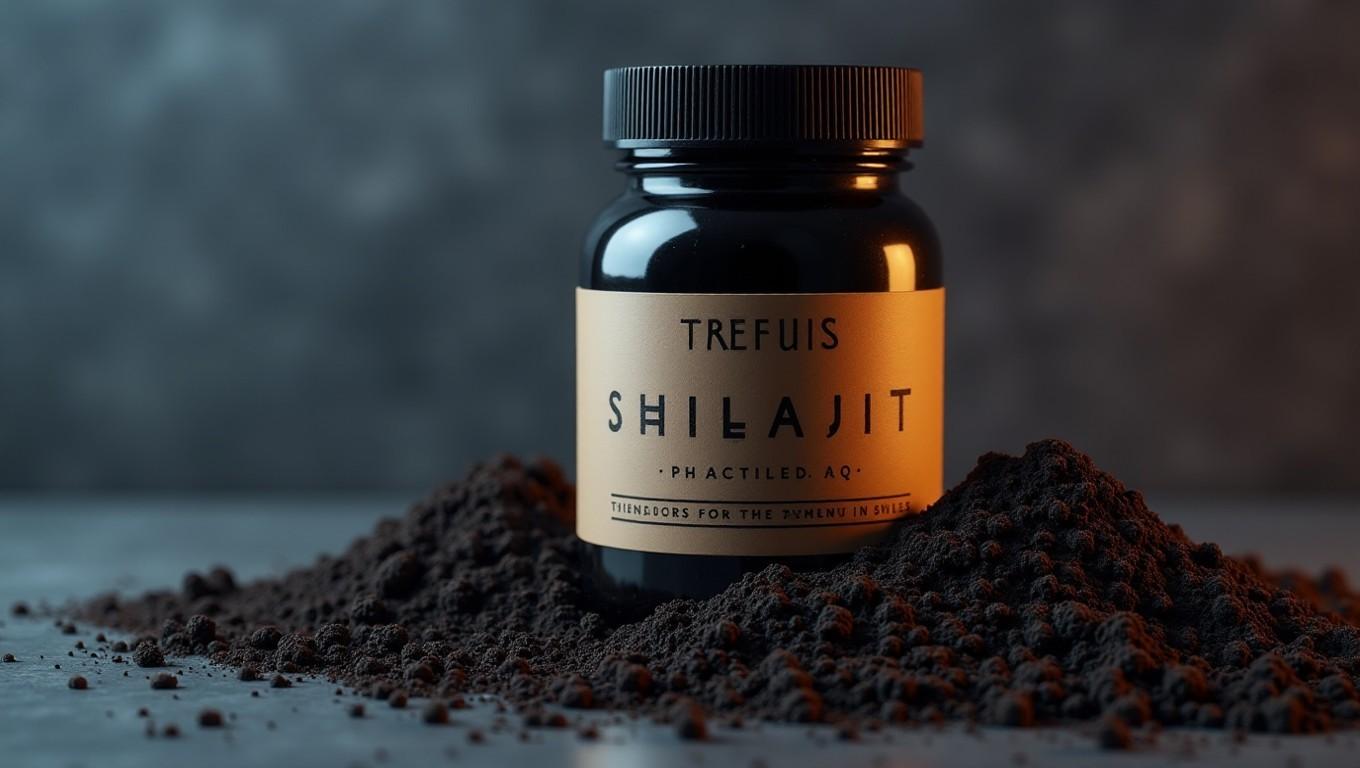In recent years, Shilajit has been making waves in the world of natural supplements, often referred to as “Nature’s Viagra.” This mysterious resin-like substance is revered for its supposed health benefits, particularly those related to energy levels and sexual performance. But does it really deliver on these promises? Let’s dive into what science and traditional medicine have to say about this ancient remedy.
What Is Shilajit?
Shilajit is an ancient Ayurvedic substance that has been used for centuries in Eastern cultures. Often known as mumijo or mumie, it is typically consumed in powder, liquid, or tablet form. This black, tar-like material is primarily harvested from the Himalayas and other mountain ranges in Asia and Russia.
Although its origins are somewhat mysterious—some suggest it’s a byproduct of plant decomposition, while others propose alternative theories—its composition is well documented. Shilajit is rich in fulvic acid, humic acid, minerals like potassium and selenium, calcium, amino acids, and various bioactive compounds.
Its rise in popularity is largely due to reported benefits ranging from boosting testosterone levels to enhancing brain function. However, it’s important to critically examine these claims, as much of the scientific evidence remains preliminary.
The Potential Health Benefits of Shilajit
Boosts Testosterone Levels: A clinical study found that men taking 250 mg of purified Shilajit twice daily experienced significant increases in total testosterone and DHEAS after 90 days of use (source).
Mental Health Improvements: A study published in the *International Journal of Alzheimer’s Disease* examined a Shilajit-based compound and reported cognitive benefits for patients with mild to moderate Alzheimer’s over a 24-week period (source). However, limitations such as small sample sizes and confounding variables temper these findings.
Anti-Aging Properties: Shilajit is traditionally revered in Ayurveda as a rejuvenating tonic. Although there’s some mechanistic evidence that fulvic acid may support cellular function and antioxidant activity, robust clinical trials validating these anti-aging claims are lacking (source).
Risks and Safety Concerns of Using Shilajit
Despite positive anecdotes, there are substantial risks involved in using Shilajit, particularly when sourcing is poor or unregulated.
Toxicity from Impurities: One of the major concerns is contamination. A study in the *Indian Journal of Pharmacology* reported alarming levels of heavy metals, such as lead and mercury, in some commercial shilajit products (source).
- Toxicity: Heavy metals can accumulate in the body and cause long-term organ damage.
- Allergic Reactions: Some users may experience rashes, itchiness, or respiratory issues.
Interactions with Medications: People with iron overload disorders like hemochromatosis or those taking medications for chronic conditions should avoid Shilajit. Always consult a healthcare provider before starting any supplement.
How to Take Shilajit Safely
When introducing Shilajit into your routine, it’s crucial to start with a small dose and monitor your body’s response. The typical dosage for purified resin is about 300–500 mg per day, but always follow the manufacturer’s instructions or your healthcare provider’s advice.
- Timing: Shilajit is often taken on an empty stomach in the morning, sometimes with warm milk or water to improve absorption.
- Form: While resin is considered the most potent and pure form, it’s also available in capsules and powder for convenience. Make sure the product is free from fillers or binders.
- Hydration: Due to its detoxifying properties, it’s advisable to stay well-hydrated while using Shilajit.
How to Identify a High-Quality Shilajit Product
Given the risks of contamination and adulteration, it’s essential to buy Shilajit only from trustworthy sources. Here are some key indicators of quality:
- Purity Certification: Look for third-party testing reports for heavy metals, microbial content, and solvent residues.
- Source: Authentic Shilajit usually comes from the Himalayas, Altai, or Caucasus mountains. Himalayan-sourced Shilajit is the most sought after for its mineral richness.
- Form Factor: Resin is the most unadulterated form. It dissolves completely in warm water or milk and has a strong earthy smell.
- Packaging: Avoid plastic packaging; opt for products stored in glass containers to maintain stability and avoid chemical leaching.
For example, premium Shilajit resin from Five Elementum is a trusted choice, known for its Himalayan sourcing, purity, and third-party lab certification.
Who Should Avoid Shilajit?
Shilajit is not for everyone. While it offers potential benefits, certain individuals should steer clear unless explicitly approved by a medical professional:
- People with chronic iron overload conditions such as hemochromatosis
- Individuals with gout or high uric acid levels, as Shilajit may exacerbate these conditions
- Pregnant or breastfeeding women, due to lack of safety data
- Children under 18
- Those on medications affecting blood pressure, blood sugar, or hormone levels
Storage Best Practices
To preserve its potency and purity, Shilajit should be stored correctly:
- Keep the container sealed tightly after each use to prevent oxidation
- Store in a cool, dark place, away from direct sunlight or heat sources
- Do not refrigerate unless specified by the manufacturer
Traditional Ayurvedic Perspective on Shilajit
In Ayurveda, Shilajit is classified as a “Rasayana,” a rejuvenator that supports longevity, vitality, and mental clarity. It is believed to enhance the absorption of other herbs and nutrients and is often used in combination with Ayurvedic adaptogens such as ashwagandha or triphala.
Ayurvedic texts suggest that Shilajit balances the body’s doshas—Vata, Pitta, and Kapha—when taken in the right form and quantity. It is especially recommended for those experiencing fatigue, low libido, or age-related degeneration, assuming no contraindications are present.
Conclusion: Informed Use Is Key
Shilajit offers a compelling blend of ancient wisdom and modern potential, but like any powerful supplement, it must be used thoughtfully. Start small, choose a high-quality product, and remain attentive to how your body reacts. Incorporating Shilajit can be a valuable part of a natural wellness plan, especially when paired with a healthy lifestyle and evidence-based practices.
For those interested in trying a trusted and high-purity option, you may consider Five Elementum’s Himalayan Shilajit resin, which offers the resin in its most natural and effective form, supported by rigorous quality controls.
As always, consult your healthcare provider before beginning any new supplement regimen—especially if you have existing medical conditions or take prescription medications.
The Verdict: Should You Take Shilajit?
Although rooted in traditional medicine and supported by some promising data, the scientific validation for Shilajit remains limited.
Limited Evidence: Most studies are preliminary or conducted with small sample sizes. Systematic reviews and well-powered clinical trials are still lacking to confirm its benefits or long-term safety (source).
If you are considering trying Shilajit, make sure it’s from a trustworthy supplier that provides certificates of analysis and third-party testing. For example, premium shilajit resin from Five Elementum is known for its purity and rigorous quality standards.
Natural remedies like Shilajit have undeniable appeal, especially when modern solutions fall short. Yet, it’s crucial to base health decisions on data, not just tradition or marketing.
| Health Benefit | Evidence Level | Risk Factors |
|---|---|---|
| Boosts Testosterone Levels | Preliminary Clinical Trials | Toxicity from Impure Supplements, Allergic Reactions |
| Mental Health Improvements (Alzheimer’s) | Small-Scale Studies | Blood Sugar Dysregulation, Gastrointestinal Issues |
| Anti-Aging Properties | Anecdotal & Mechanistic Evidence | Heavy Metal Contamination, Medication Interactions |
For those seeking well-documented alternatives, consider herbal options such as ashwagandha or Panax ginseng, both of which have undergone more extensive clinical research.
Ultimately, health is a personal journey. What works for one individual may not work for another. Always consult a qualified healthcare provider before incorporating new supplements into your routine.






